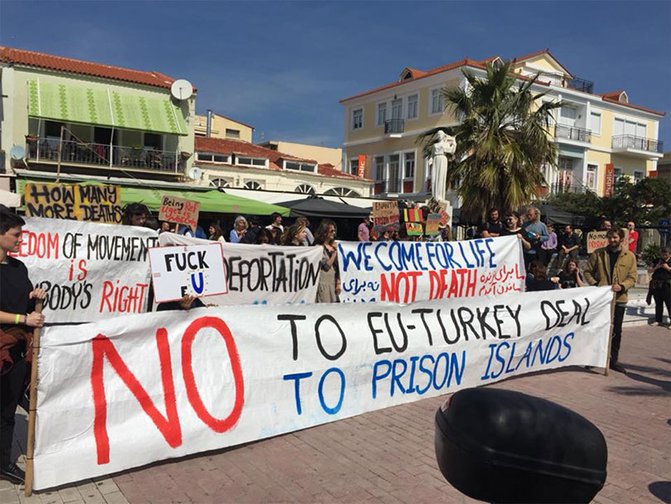Author: Ludec Stavinoha | opendemocracy.net | 16 August 2019
Refugees trapped on the Greek islands are doubly silenced, first by the camp authorities and then by the media.

In early April, images of refugees being teargassed by Greek police temporarily reawakened the European public to the ongoing ‘refugee crisis’. The images showed the premature end of the ‘Caravan of Hope’, in which hundreds of people departed from the Diavata camp near Thessaloniki, Greece and sought to cross over the border into Macedonia. The caravan was but the latest manifestation of refugees’ collective refusal to give up on the prospect of a better future for themselves and their families.
News reports of the caravan did not, however, focus on the participants’ demand for a freer, better life. Nor did they focus on the dismal conditions underlying this open display of defiance against their confinement within Greece. Instead, much of the news coverage suggested that the cause of the march was a rumour that the border was set to open and focused on “clashes” between “migrants” and police. The BBC, for instance, labelled the caravan as a “fake news border movement”. Such reporting is emblematic of how the political voices of refugees are often rendered mute in media accounts.
That said, to have reports at all these days is rare. There are some exceptions, such as the protests in Diavata or more recently in the overcrowded camp on the island of Samos, but in general the so-called refugee crisis in Greece has all but disappeared from mainstream news reports. The few stories that do appear are depressingly predictable – a litany of suffering, pain, and despair. Read more>>>
